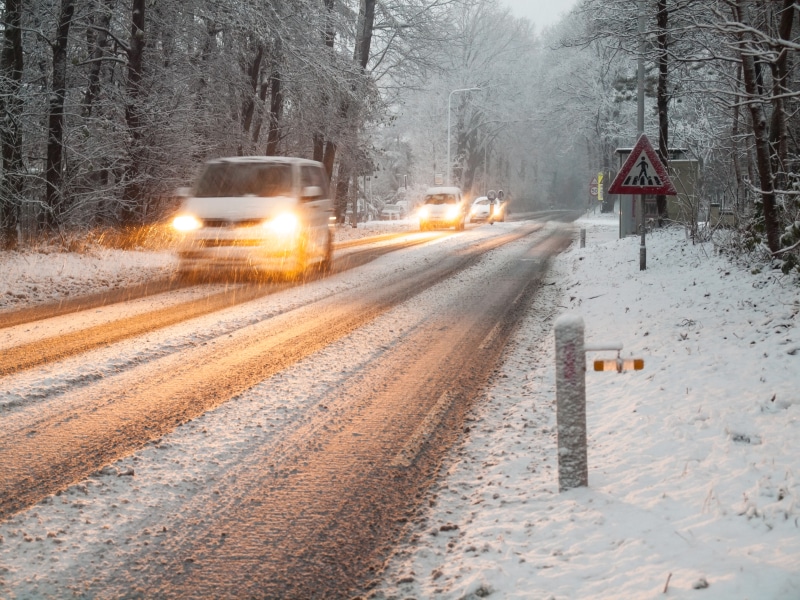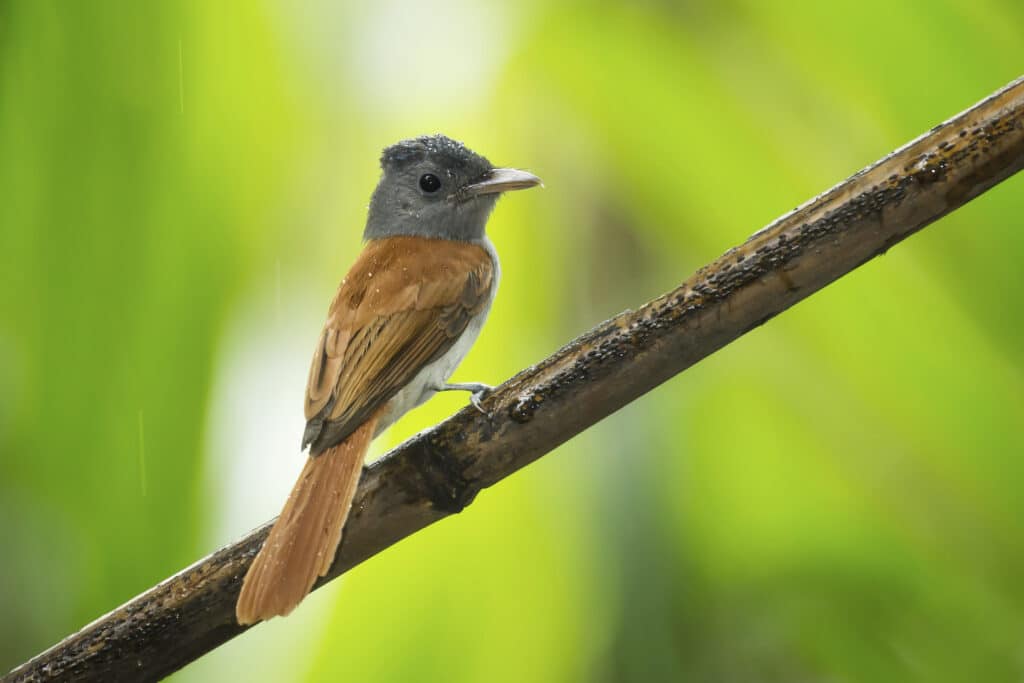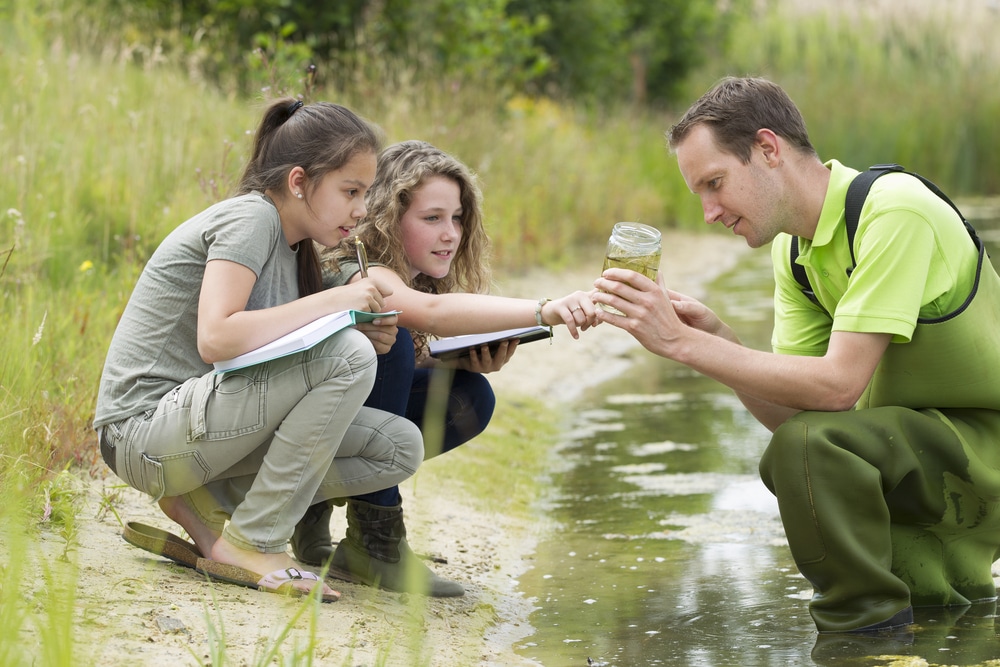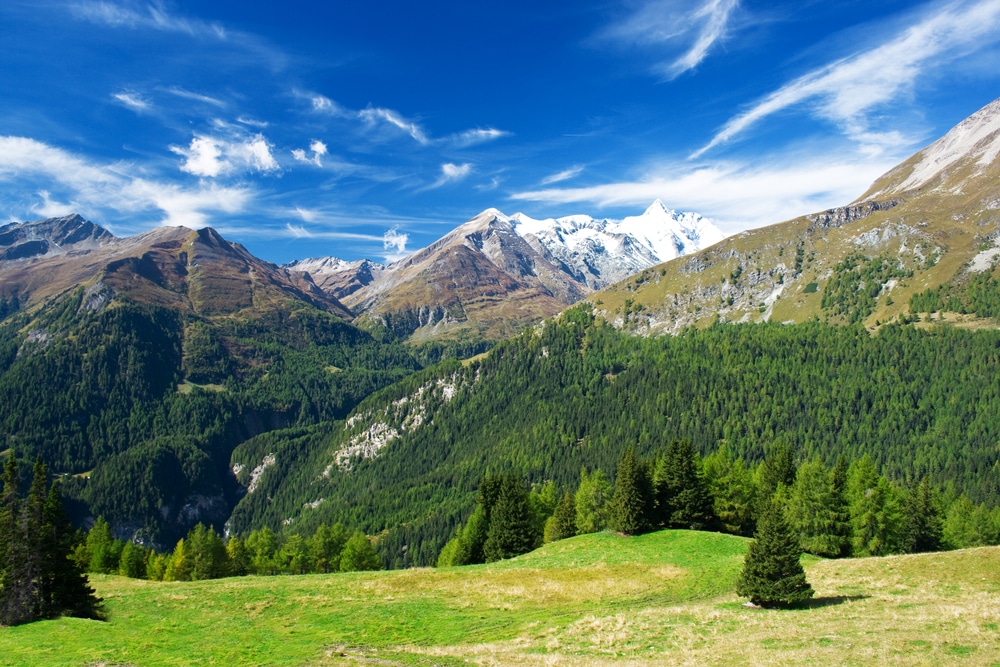
125 Nature Words in Spanish [With Audio]
The environment is always around us and often discussed.
Even if you’re not a nature lover, it’s useful to know how to talk about the natural features where we live and beyond.
In this article, you’ll learn 125 nature words in Spanish for everything from different ecosystems to weather to landforms and more.
Try to learn a few every day and you’ll soon be a Spanish nature expert!
Contents
- Los Árboles (Trees)
- Las Flores (Flowers)
- Otras Plantas (Other Plants)
- Características Geográficas (Geographic Features)
- Los Ecosistemas ( Ecosystems)
- El Agua (Water)
- El Tiempo (The Weather)
- Los Animales (Animals)
- La Naturaleza (Nature)
- Protección del Medio Ambiente (Environmental Protection)
- Áreas de Estudio (Fields of Study)
- El Espacio (Space)
- And One More Thing…
Download: This blog post is available as a convenient and portable PDF that you can take anywhere. Click here to get a copy. (Download)
Los Árboles (Trees)
1. el árbol (the tree)
Don’t forget to add the accent mark above the a. The stress is on the penultimate syllable and the word ends with l, so the accent mark is compulsory.
2. el castaño (the chestnut tree)
Chestnuts ( las castañas ) are probably one of the most typical fall nuts. Spaniards love them asadas (roasted).
3. la haya (the beech tree)
This word, along with halla, aya and allá tend to drive people crazy. Are you able to remember the difference between them?
4. el cedro (the cedar)
5. el roble (the oak tree)
While roble refers to a single oak tree, oak wood is called robledo in Spanish.
6. la palmera (the palm tree)
7. el olmo (the elm tree)
There’s a very interesting expression in Spanish: pedirle peras al olmo (lit. “to ask the elm tree for pears”), which means “to ask the impossible.”
8. el pino (the pine tree)
9. el árbol de manzana (apple tree)
10. la raíz (the root)
A perfect example of a Spanish hiatus. The plural version is las raíces (the roots).
11. la rama (the branch)
Las Flores (Flowers)

12. la flor (the flower)
Flor may look like a masculine word but it is, in fact, feminine. It ends with a consonant, so its plural is las flores (the flowers).
13. el tallo (the stem)
14. la hoja (the leaf)
Remember that we don’t pronounce the letter h in Spanish. We say it’s una letra muda (a silent letter).
15. la espina (the thorn)
Espina comes from Latin spina (spine, thorn). From the same root, we also have la espiga (the spike).
16. el pétalo (the petal)
Here we have a wonderful cognate. Use cognates to save time in your learning process!
17. el polen (pollen)
18. la rosa (the rose)
The rose is internationally considered la flor del amor (the flower of love) so you can use it to add a little romance.
19. el clavel (carnation)
20. la margarita (the daisy)
I bet you didn’t know that the word margarita comes from the Greek word margaritari, which means “pearl”!
21. el tulipán (the tulip)
The word tulipán loses the accent mark when it becomes plural ( los tulipanes — the tulips). A lot of European languages share this cognate, which comes from Turkish tülbant (turban).
22. la amapola (the poppy)
23. la lila (the lilac)
Just as in English, lila can also be a color ( color lila — lilac color).
24. el girasol (the sunflower)
Otras Plantas (Other Plants)

25. la planta (the plant)
26. el cactus (the cactus)
27. el arbusto (the bush)
28. el jardín (the garden)
This is another example of a word that loses its accent mark in its plural form ( los jardines — the gardens).
29. el césped (the grass, the lawn)
30. la mala hierba (the weed, lit. the bad grass)
The word hierba is also spelled yerba in some Latin American countries such as Argentina, Chile, Paraguay and Uruguay. Yerba mate, anyone?
31. el manglar (the mangrove)
32. la vegetación (the vegetation)
33. la montaña (the mountain)
Another pair of cognates for you. Remember that in Spanish you only read the letters that are written, so don’t try to make the diphthong ou out of Spanish o. Read it as “oh.”
34. la sierra / la cordillera (the mountain range)
Sierra means both “mountain range” and “saw,” as in the tool people use to cut wood. The original meaning of the word referred to a mountain range. Due to the similarity of a saw’s teeth to the peaks of a mountain range, the tool was named the same in Spanish.
35. el valle (the valley)
A cognate coming from the Latin vallis (valley).
36. la colina / el cerro (the hill)
37. el acantilado (the cliff)
As an adjective, this word means “steep or “sheer.”
38. la meseta (the plateau)
39. el cañón (the canyon)
40. la llanura (the plain)
41. el volcán (the volcano)
The plural version, los volcanes (the volcanos), loses the accent.
42. la erupción (the eruption)
Another clear pair of cognates with a Latin origin. Here’s a little trick: all Spanish words ending in -ción/-sión are feminine!
43. la pradera (the prairie)
44. la isla (the island)
45. la península (the peninsula)
Los Ecosistemas ( Ecosystems)

46. la selva (the rainforest, the jungle)
Spanish has two words that can create confusion: selva and jungla. Jungla and “jungle” are clearly cognates and have the same meaning (a forest covered in dense vegetation and dominated by trees).
On the other hand, a selva is a rainforest, which is very similar to a jungle, but still a little bit different.
If you want the easy version, you can say that a rainforest is where the trees are tall and little light can penetrate, while a jungle has a thick undergrowth of vegetation.
If you want the official, scientific differences between the two, you can have a look at differencebetween.net, a great website where you can find definitions and comparisons between very similar or related terms.
47. el bosque (the forest)
The Germanic root *busk- entered different languages with slightly different meanings.
On the one hand, it entered Catalan or Occitan as bosc (forest), from where Spanish got its bosque. On the other hand, it was introduced into German and English as bush. Different meanings, but still related to nature.
48. la sabana (the savannah)
Watch out for the change in consonant here. While English writes this word with a v, Spanish has opted for the version with a b.
Additionally, do not mistake la sabana with la sábana , the latter meaning “the bed sheet.” The power of the accent mark is unbelievable!
49. el desierto (the desert)
The word desierto can mean different things depending on how it is being used. As an adjective, it means “uninhabited, deserted, desolate.” If we add the definite article el, we transform the adjective into a noun meaning “the desert.”
50. los herbazales / los pastizales (the grasslands)
El Agua (Water)

51. agua dulce (freshwater)
Remember that we use el instead of la before the word agua to break the double vowel, but it’s still a feminine noun and takes feminine adjectives and qualifiers. For example, we’d say “agua fría” (cold water) and “El agua está helada” (The water is freezing).
52. agua salada (saltwater)
53. el lago (the lake)
Lago and “lake” are cognates and they both come from Proto-Germanic *lakō.
But while *lakō entered Old English as lacu (pond), giving Middle English lake (lake, pond) and finally Modern English “lake,” it also entered Latin as lacus (lake, pond), which morphed into the Spanish lago.
54. el río (the river)
Another great example of a Spanish hiatus, this one with three letters and two syllables.
55. el estuario (the estuary)
56. la cascada (the waterfall)
57. el mar (the sea)
Mar is an example of an ambiguous gender noun. There are over a dozen of them in Spanish and they can normally be both masculine and feminine depending on the context or meaning.
58. el océano (the ocean)
This one is yet another example of a cognate. Pay special attention to the Spanish pronunciation, though. We add the stress (and an accent mark!) on -cé- instead of o-.
59. la bahía (the bay)
60. el arrecife (the reef)
61. la ola (the wave)
An ola is a wave and hola means “hello.” They’re two examples of Spanish homophones, which are words with the same sound but different meanings.
62. la marea (the tide)
Both marea (tide) and marearse (to get dizzy or seasick) come from the word mar (sea), which entered Spanish from Latin mare (a mass of water).
63. la orilla (the shore, the bank)
64. la playa (the beach)
65. el glaciar (the glacier)
El Tiempo (The Weather)

66. el tiempo (the weather)
Tiempo is an interesting word with a few different meanings, among which we can highlight “weather” and “time.”
If you ever travel to Spain and there’s a TV program called “El Tiempo,” you’re set to watch the weather forecast.
Some expressions with tiempo worth mentioning are:
¿Qué tiempo hace hoy? (What is the weather like today?)
Hace mucho tiempo… (A long time ago…)
Tiempo de vida (lifespan)
67. el clima (the climate)
This is one of those tricky Spanish words that ends in an “a” but is actually a masculine noun. While it technically means “the climate,” it’s often used to refer to the weather.
68. el calor (the heat, the warmth)
Calor is another example of an ambiguous gender noun, so it can be both masculine and feminine. This is the word you use in Spanish to say you’re hot ( tengo calor ) and it’s hot ( hace calor ) when referring to the weather.
I’ve heard many people translate “I’m hot” literally as Estoy caliente , creating all kinds of embarrassing situations for them. Remember that Estoy caliente has a rather risqué meaning (in essence, you’re saying that you’re all hot and bothered!) so do your homework and remember when to use each expression.
69. el frío (the cold, the coldness)
Frío is another example of a word that uses tener and hacer in order to make expressions. You can say Hace frío (It’s cold) and Tengo frío (I’m cold).
By the way, the word frío comes from Latin frigidus (cold), a word that has also given us frígido (frigid), another example of a cognate.
70. el viento (the wind)
Remember that a lot of weather expressions are formed with the verb hacer (to do, to make) in Spanish.
In this case, when you want to say it’s windy, you’ll say Hace viento (literally: “It makes wind”).
71. la brisa (breeze)
The word “breeze” comes from the Old Spanish briza, which meant “cold northeast wind.”
72. las nubes (the clouds)
73. la lluvia (the rain)
This is the perfect moment to learn the popular children’s song “Que llueva, que llueva” (“Let It Rain, Let It Rain”).
74. la tormenta (the storm)
If you want to say there’s a storm going on, say hay tormenta in Spanish (hay coming from the verb haber).
75. el trueno (the thunder)
76. el relampago (the lightning)
77. el huracán (the hurricane)
The word huracán includes two characteristics that have already appeared in this post in other words: the h is silent and the word loses its accent mark when in its plural form ( huracanes ).
78. la nieve (the snow)
79. el granizo (the hail)
The word granizo is formed by the word grano (grain) and the suffix -izo. Grano entered Spanish via Latin granum (grain, seed).
80. el tsunami (the tsunami)
This is an example of a perfect cognate, both in the singular and plural ( tsunamis ). The word comes from two Japanese words: tsu (harbor) and nami (waves).
81. la tempestad (the tempest)
This word is also the name of one of Shakespeare’s plays. There are lots of bilingual (English and Spanish) Shakespearean plays. Do you have what it takes to read at least one of them?
82. el ciclón (the cyclone)
Here’s another pair of cognates. They both come from Greek kyklon, which means “moving in a circle, whirling around.”
83. el tornado (the twister, the tornado)
The history of this word is very interesting.
Spanish has the word tronar (to thunder), which has the past participle tronado (thundered). English took the word tronado and changed it slightly to “tornado” and used it to refer to a twister. Finally, Spanish borrowed back the word in its new form, tornado, and with its new meaning as well.
Los Animales (Animals)

84. la especie (the species)
85. las especies en peligro (the endangered species)
86. los insectos (the insects)
87. las aves / los pájaros (the birds)
It’s interesting to mention that even though the word ave is feminine, it uses the masculine article el when it’s singular (el ave/las aves). Other words like ave are agua, hacha and águila, just to name a few.
88. los mamíferos (the mammals)
89. los peces (the fish)
90. los reptiles (the reptiles)
91. los anfibios (the amphibians)
La Naturaleza (Nature)

92. la naturaleza (the nature)
We can’t forget about our main character in a list of words related to it. Naturaleza comes from natura, which comes from the same Latin word. Latin natura also gave English its “nature” so, at the end of the day, the origin of nature is the same for both our languages!
93. el aire libre (the fresh air)
Aire libre literally means “free air.” When you change el for al (in the expression al aire libre), it doesn’t mean exactly fresh air but “outdoors,” as in outdoor activities ( actividades al aire libre ), and “open-air,” as in an open-air concert ( concierto al aire libre ).
94. la tierra (the soil)
When it’s capitalized, this word means “Earth” but when it’s lowercase, it means “soil,” “land” or “the ground.”
95. el lodo (the mud)
96. la arcilla / el barro (the clay)
97. la arena (the sand)
98. la piedra (the stone)
99. la roca (the rock)
100. el amanecer (the dawn, the sunrise)
El amanecer is a great example of an infinitive (amanecer — to dawn, to awake) transformed into a noun just by adding a definite article. This is probably the most common way of transforming verbs and adjectives into nouns.
101. el atardecer (the sunset, the dusk)
The same happens with this word, atardecer (to darken, to get dark). Just by adding the definite article, we get a new Spanish noun.
102. el paisaje (the landscape, the scenery)
Paisaje comes from the French pays (field) and the suffix -aje (set, group, array). It literally means “group of fields.”
103. el medioambiente (the environment)
A lot of people are uncertain about how to write this word in Spanish. Some opt for the one-word version medioambiente while others prefer the two-word medio ambiente.
The truth is that both terms are accepted and included in our dictionaries, but the Diccionario de la Real Academia de la Lengua Española (Dictionary of the Royal Academy of the Spanish Language) prefers the one-word option.
As long as you know it means “environment,” write it as you please.
Protección del Medio Ambiente (Environmental Protection)

104. la conservación (conservation)
105. el cambio climático (climate change)
106. el calentamiento global (global warming)
107. la energía renovable (renewable energy)
108. la energía solar (solar energy)
Other forms of renewable energy include energía eólica (wind energy), energía hidroeléctrica (hydroelectric energy) and energía geotérmica (geothermal energy).
109. los gases de afecto invernadero (greenhouse gases)
110. la contaminación (pollution)
Áreas de Estudio (Fields of Study)

111. las ciencias naturales (natural sciences)
112. la ciencia de la Tierra (Earth science)
113. la biología (biology)
Biología and “biology” are clearly cognates. Both words come from Greek bio (life) and logía (branch of study), which makes total sense since biology is the branch that studies life.
Pay special attention to three small details that make the Spanish and English versions different. For starters, the stress falls on different syllables (-gí- in Spanish and -o- in English). Additionally, the stress on the vowel -í- forces it to add an accent mark. Finally, notice the difference in pronunciation between English -gy and Spanish -gía.
114. la ecología (ecology)
Ecología is very similar to biología in the sense that it’s formed by two Greek words: oikos (house, household, home) and logía (branch of study).
In case you did not know, ecology is the science that studies the homes of organisms or, in other words, their habitats.
115. la geología (geology)
116. la geografía (geography)
117. la ciencia atmosférica (atmospheric science)
118. la química (chemistry)
119. la hidrografía (hydrography)
El Espacio (Space)

120. la Tierra (Earth)
121. el planeta (the planet)
Another almost perfect pair of cognates. Remember the stressed syllable in Spanish is -ne-.
122. el sol (the sun)
123. la luna (the moon)
124. las estrellas (the stars)
125. la atmósfera (the atmosphere)
As you can see, a lot of nature terms are cognates in Spanish and English, and some of them are even written identically. This makes nature not only an interesting topic but also a relatively easy one to learn. The FluentU program can make it even easier to learn new vocabulary through Spanish-language videos.
FluentU takes authentic videos—like music videos, movie trailers, news and inspiring talks—and turns them into personalized language learning lessons.
You can try FluentU for free for 2 weeks. Check out the website or download the iOS app or Android app.
P.S. Click here to take advantage of our current sale! (Expires at the end of this month)

Now go outside and get inspired by nature! You can add terms to this list and make your own categories for the ultimate environmental glossary.
Download: This blog post is available as a convenient and portable PDF that you can take anywhere. Click here to get a copy. (Download)
And One More Thing…
If you've made it this far that means you probably enjoy learning Spanish with engaging material and will then love FluentU.
Other sites use scripted content. FluentU uses a natural approach that helps you ease into the Spanish language and culture over time. You’ll learn Spanish as it’s actually spoken by real people.
FluentU has a wide variety of videos, as you can see here:

FluentU brings native videos within reach with interactive transcripts. You can tap on any word to look it up instantly. Every definition has examples that have been written to help you understand how the word is used. If you see an interesting word you don’t know, you can add it to a vocab list.

Review a complete interactive transcript under the Dialogue tab, and find words and phrases listed under Vocab.

Learn all the vocabulary in any video with FluentU’s robust learning engine. Swipe left or right to see more examples of the word you’re on.

The best part is that FluentU keeps track of the vocabulary that you’re learning, and gives you extra practice with difficult words. It'll even remind you when it’s time to review what you’ve learned. Every learner has a truly personalized experience, even if they’re learning with the same video.
Start using the FluentU website on your computer or tablet or, better yet, download the FluentU app from the iTunes or Google Play store. Click here to take advantage of our current sale! (Expires at the end of this month.)










